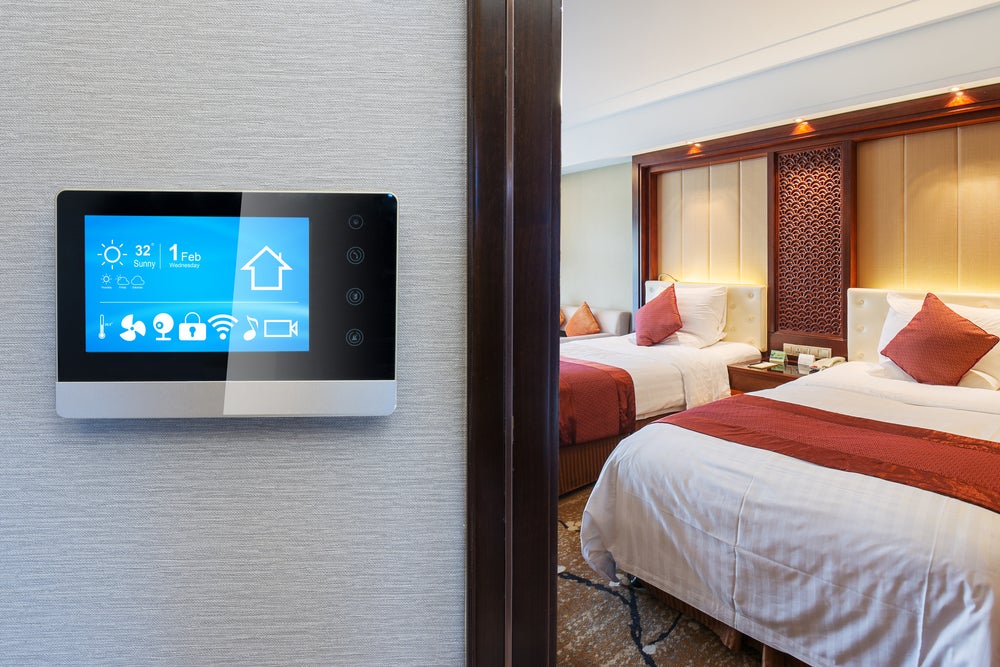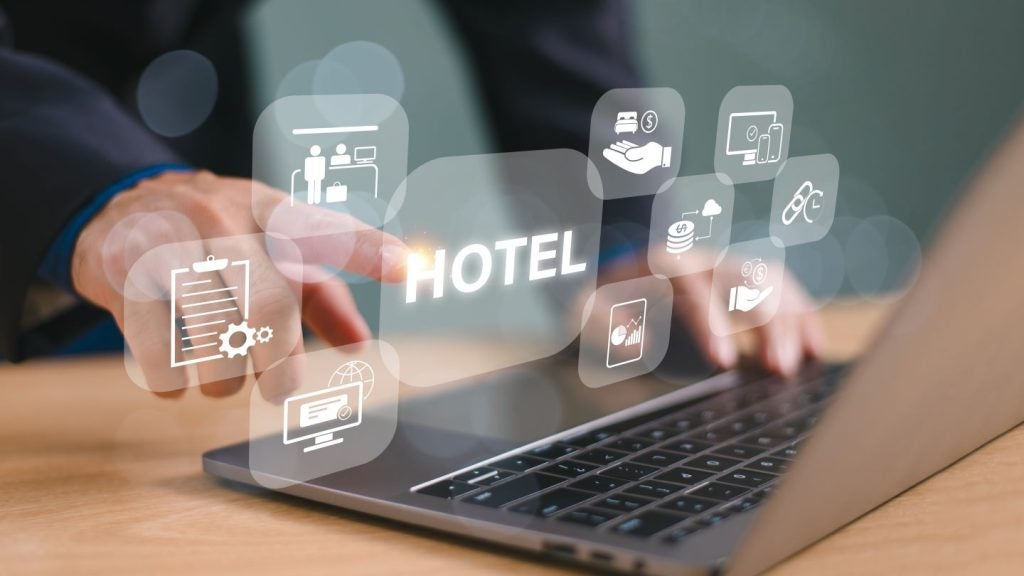
The benefits of advancing technology are undeniable for hotel staff and guests alike, and 2024 looks to be a year of continued growth.
Guests can enjoy personalised and efficient service from in-room technologies that hotels are continuing to invest in. A recent example is LuxUrban Hotels’ investment in piloting the use of Amazon Alexa devices in its rooms to further increase the accessibility of property services and amenities.
Meanwhile, hotel businesses and managers can streamline staff schedules, property maintenance, and receive useful data on anything from carbon emissions to guest information.
As 2024 approaches and there is more distance put between the global hotel industry and post-pandemic recovery, Hotel Management Network discusses what the year ahead holds for hotel technology with Harry Fielder, CEO of marketing agency Umi Digital.
What technology strategies should hotels implement in 2024?
Fielder: 2024 is going to be the year of data aggregation and data strategy. We have spent the last year cherry-picking systems and software in isolation to one another and 2024 will see this come to an end.
The pressure is rising from multiple areas; the importance of first party data in a cookieless world, the demand of guests for a commercial experience and the strategic importance of a consolidated data strategy from ownership and management.
How well do you really know your competitors?
Access the most comprehensive Company Profiles on the market, powered by GlobalData. Save hours of research. Gain competitive edge.

Thank you!
Your download email will arrive shortly
Not ready to buy yet? Download a free sample
We are confident about the unique quality of our Company Profiles. However, we want you to make the most beneficial decision for your business, so we offer a free sample that you can download by submitting the below form
By GlobalDataWe will start seeing technical skills among the leadership team of hotels that will start orchestrating this holistic approach to technology. We will also see a shift in the upskilling strategy of hotel teams towards leveraging data, AI and having a solid comprehension of connectivity.
Are there new guest-facing technologies expected to gain prominence?
Fielder: The customer data platform is the holy grail for hotel tech providers at the moment, with no-one effectively delivering a complete solution at present. We will see CRM, PMS and data warehousing compete to become the central source of truth for aggregate guest profiles.
We cannot leave out the rapid adoption of AI solutions in the hotel industry, across generative tools such as Chat GPT and more specialised solutions in revenue management, sustainability and guest insights.
What challenges do you foresee in implementing hotel technology?
Fielder: I think the technical skill in hotels is currently a limiting factor when it comes to making the best use of the tools available in the marketing. Most hotels are only using a fraction of the capabilities of the tools that they currently have in place. A good example of this is hotels adopting cloud PMS systems but never leveraging the power of their underlying APIs to improve data flow across the organisation. This is not necessarily cost prohibitive, it is that there is limited technical understanding at the strategic level in hotels.
I also see the tension between SaaS solutions and owned solutions increase. The barriers to entry into developing and owning tools such as booking engines are lowering all the time as PMS connectivity improves.
Alongside the rising ambitions of owning an end-to-end experience and first-party data pressures, I foresee the buy vs build debate becoming more complex.
What strategies will encourage staff and guests to engage with these advancements?
Fielder: It all comes down to learning and upskilling in technical areas. I believe that the marketing roles will require basic coding skills, a comprehensive understanding of prompt engineering for AI tools; I see the leadership roles requiring technical understanding to properly evaluate investment opportunities and I see there being a role for a hotel CTO in the near future to guide businesses on the right path.
Systems and tools are going to become ever more sophisticated in themselves, and in their interplay with each other. The leaders of the future will be the ones that truly understand the underlying technology as well as its real-world implications for the commercials and guest experience.







